What videogame jumps into your mind when you think of couch multiplayer?
Halo? Goldeneye? Overcooked?
For me, couch multiplayer gaming will always be California Games. It was a game that my friends and I played endlessly back in 1989. Couldn’t get enough of it… To this day, it remains one of my favourite Sega Master System games.
It also got a ton of ports… but were are any of them any good?
Join the hack and find out, my dude…
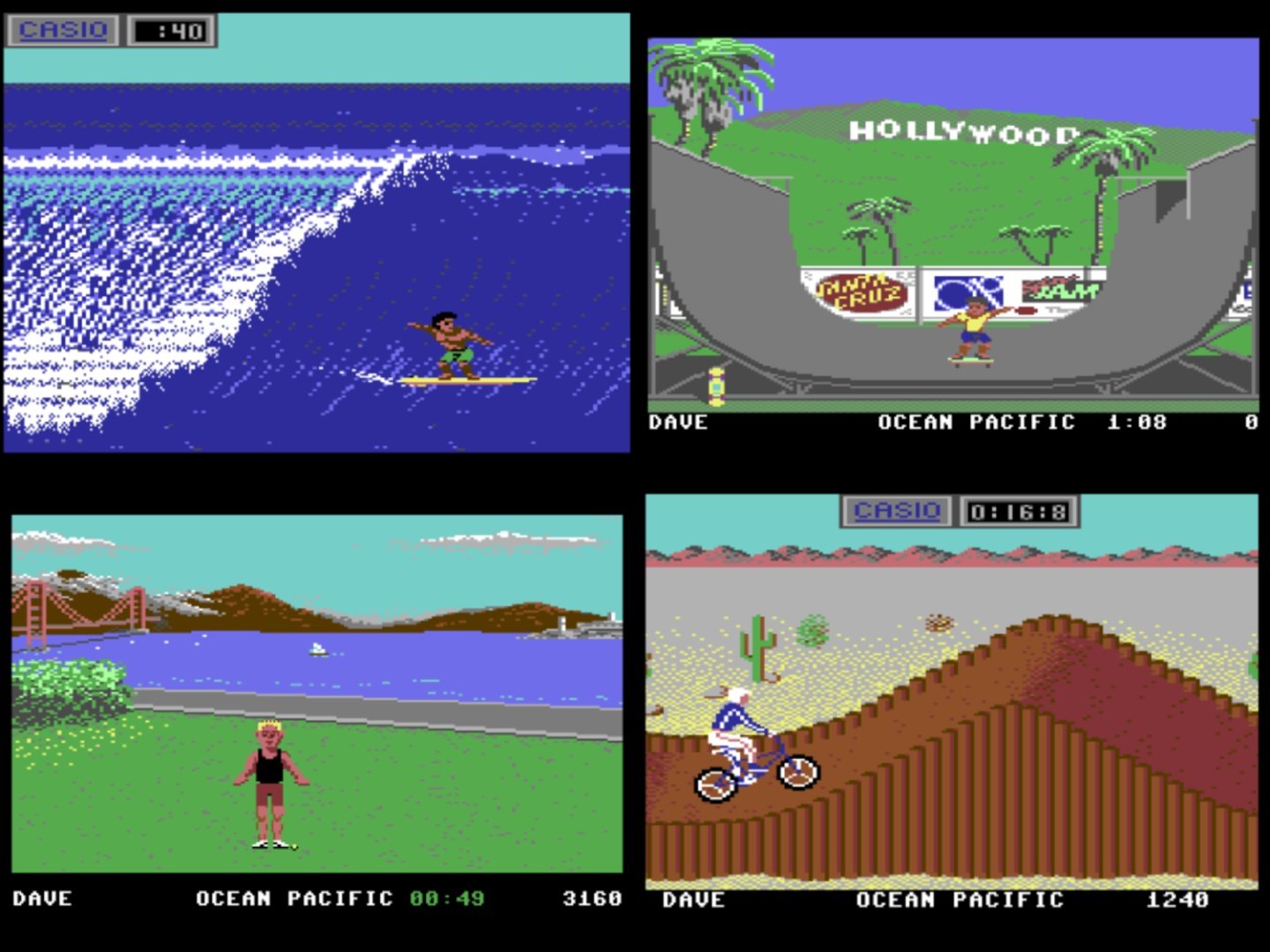
California Games was originally developed by Epyx for the C64 and Apple IIe. It’s an event-based sport sim, of the kind that was popular in the late 80s. Think Hyper Sports, but with more 'tude.
Events included: half-pipe, foot bag (hacky sack), surfing, skating, BMX and flying disk (frisbee). Each involves various combinations of skilful control and button mashing.
Overall, it’s colourful and moreish, with just the right mix of DudeBro and SportsBro…
Let’s start with the original C64 port.
Honestly, it’s hard to overstate how much better this version is than the other 8-bit micros. It has it all - smooth controls, relatively colourful graphics, great sound. It also has far more interstitial graphics and menus than the others, as well as the “correct” list of sponsors.
Some events are better than others - half-pipe is terrible, no matter which version it’s on; while surfing is a lot of fun.
Overall it’s still worth a look today.
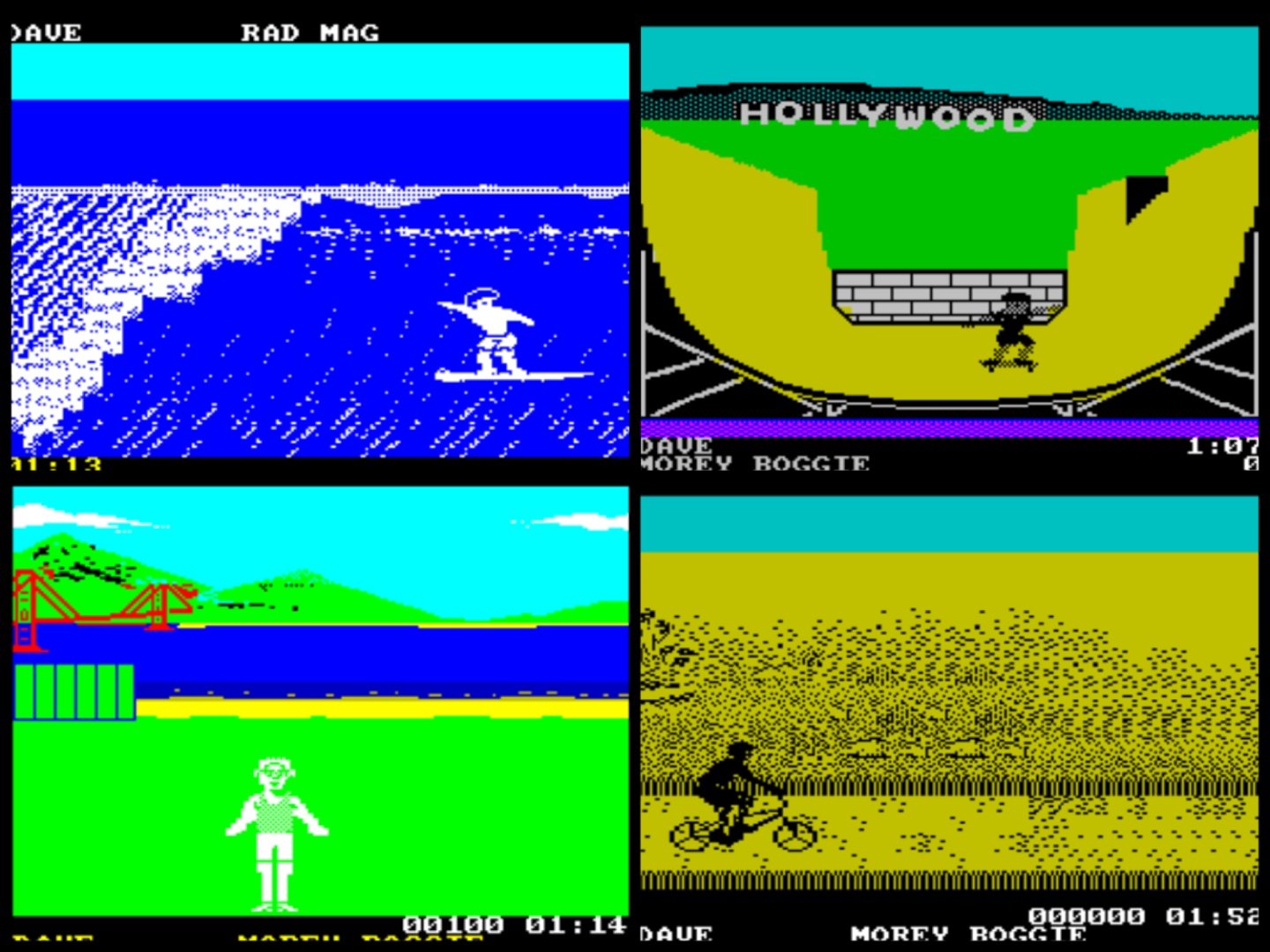
At the other end of the quality spectrum, is the actual Spectrum. Crash Magazine gave this version 36%, and I think that was somewhat generous.
The graphics ruin this one, lacking even that classic Speccy-charm. One event in particular (BMX) looks like a borderline hate-crime. Sound is nonexistent, all of the colour and life has gone from the menus and control is pretty terrible.
Buuuut, all the events are in there, and it moves reasonably well… So it could have been worse, I suppose…
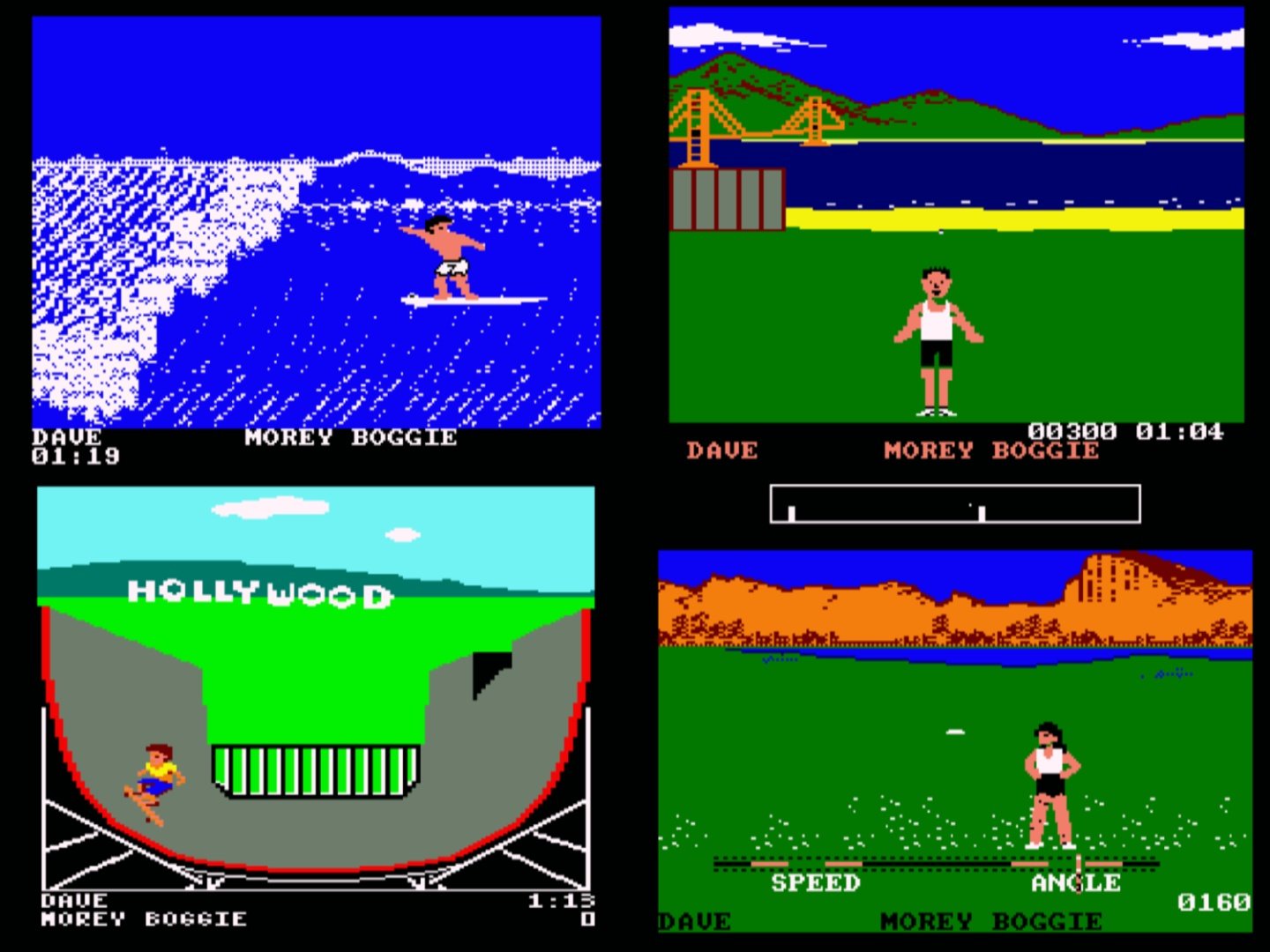
Speaking of “worse”, we come to the Amstrad version…
Oh boy.
Basically, it’s the Spectrum version, with a bit more colour and a lot less speed.
The lack of speed really ruins this one, making it the sick relative of the already ailing Speccy port. It just makes the timing impossible… foot bag is suddenly painful, half-pipe ends up being impossible. Even surfing loses any joy.
And, for some reason, the foot bag character is an out-of-shape, middle-aged man in a vest… This isn’t the escapism I’m looking for in my games!
Sorry Amstrad fans.
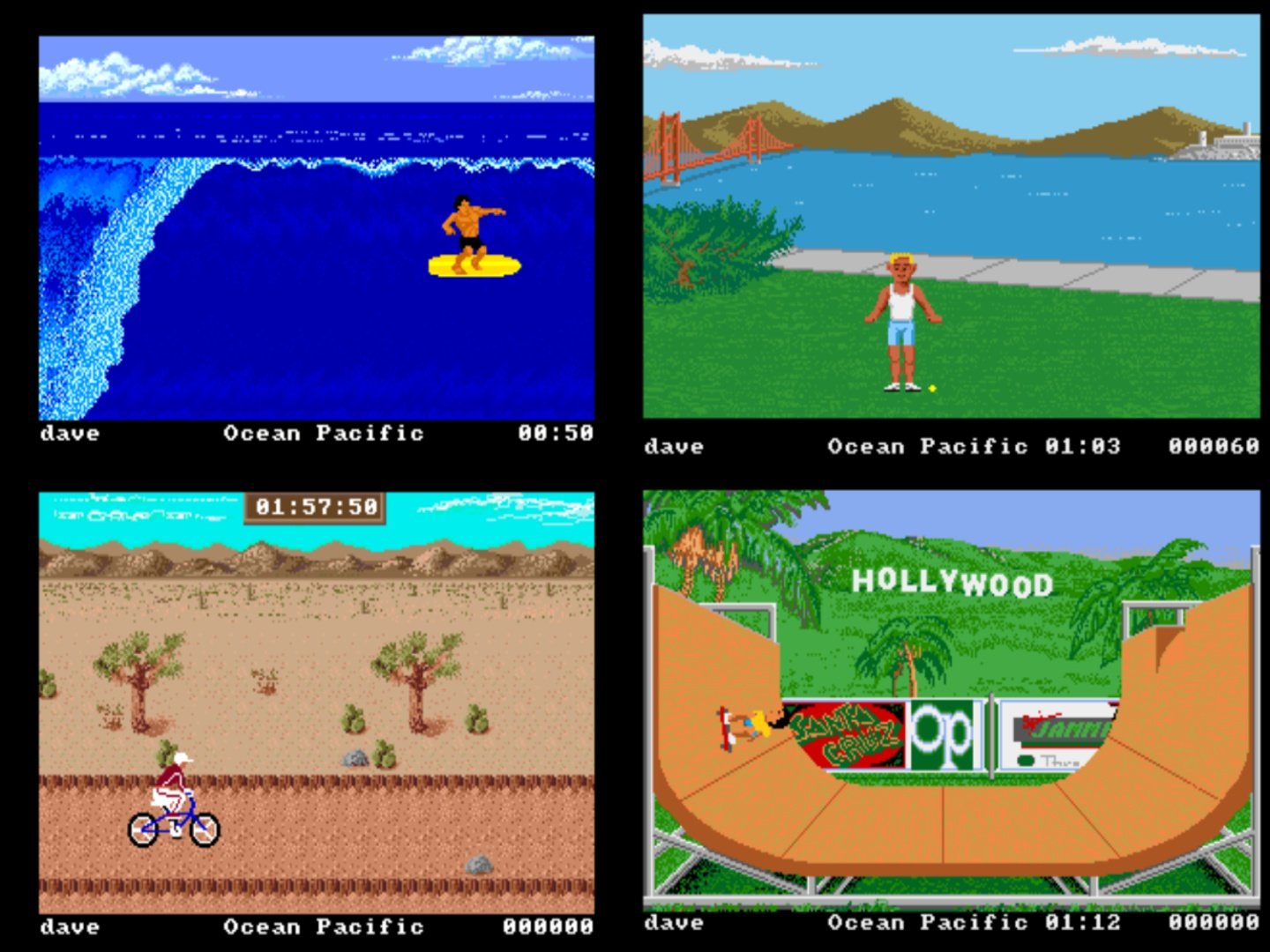
Next up is the Amiga version.
Not a lot to say about this one. It’s the C64 with a 16-bit lick of paint. It has the full menus and sponsors, some really funky Amiga-esque music, and generally plays well. Flying disk swaps a lady thrower for a buff dude, but that’s about the only difference.
A good, solid port.
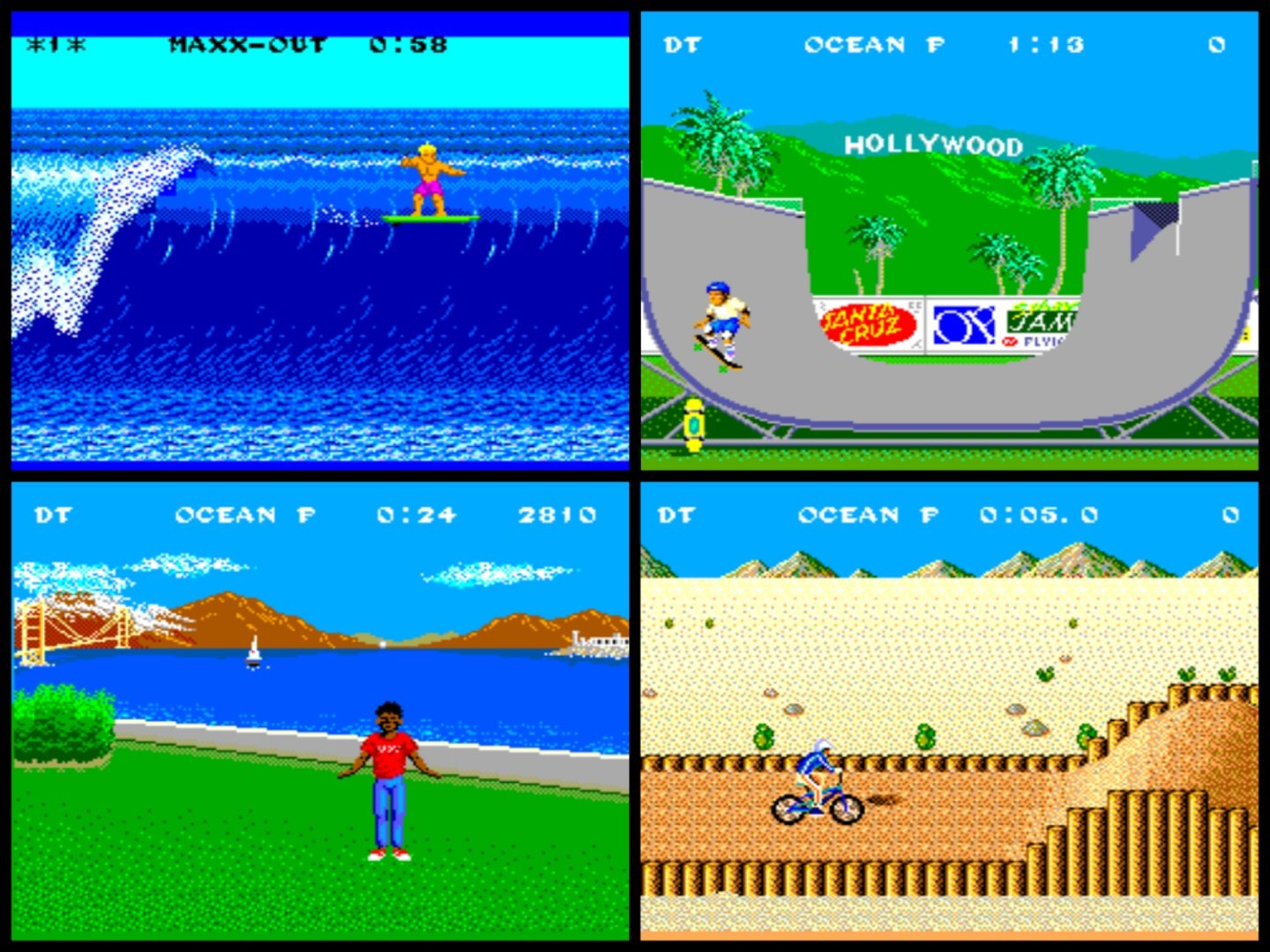
My personal favourite is the Sega Master System port. Something about this game really fits the Sega blue-sky aesthetic.
The addition of a second joystick button adds some much-needed flexibility to the BMX event, and the console fluidity helps the timing on the half-pipe and foot bag events, making them both far more enjoyable.
If you’re going to play California Games, this wouldn’t be a terrible place to start.
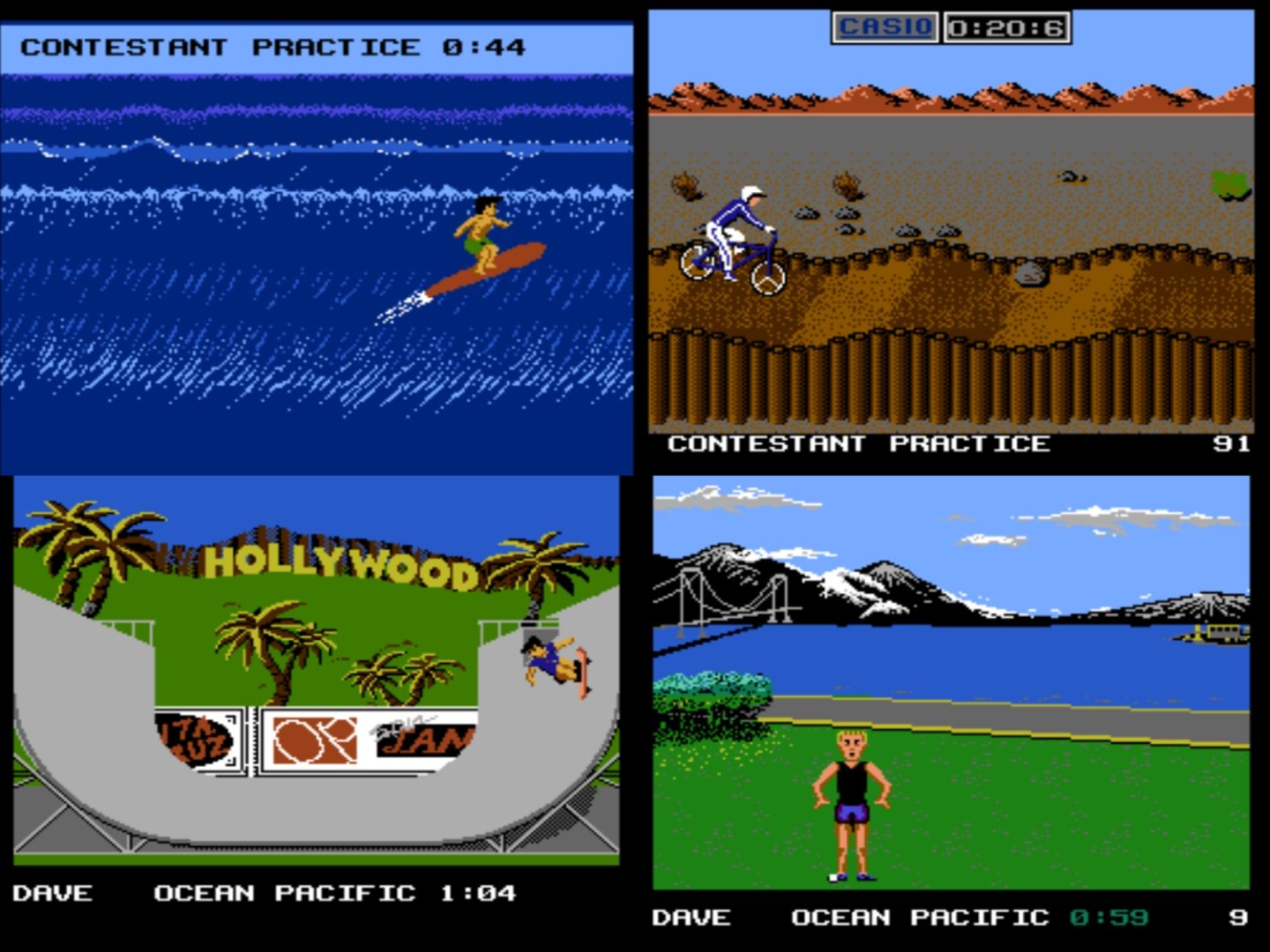
There’s a NES port as well, which has all of the elements of the game, but just doesn’t feel as “together” as the SMS version. It’s a lot more drab, and the controls feel fiddly in places.
Also, in the flying disk event, you seem to be throwing to your mum. And she doesn’t look at all happy with you.
Overall, not terrible, not brilliant.
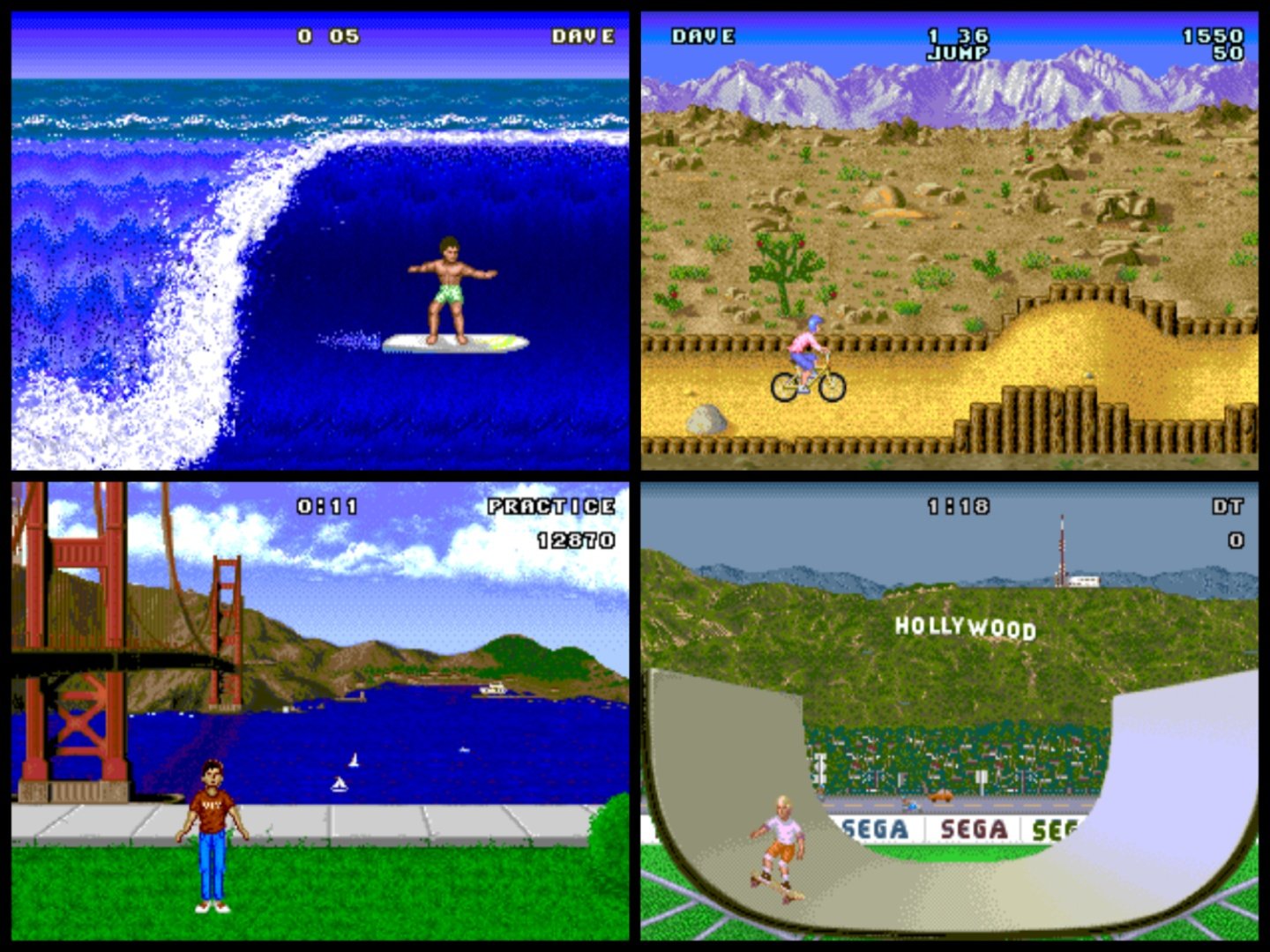
The MegaDrive version pretties up the graphics a lot, being by far the best looking port. Unfortunately, it seems to lose something of the simplistic charm of the game. It goes it’s own way on sound and presentation in a lot of places as well. It also, bizarrely, omits the flying disk event…
It’s not a bad port by any means, it just feels like more of a re-imagining rather than a remastering.
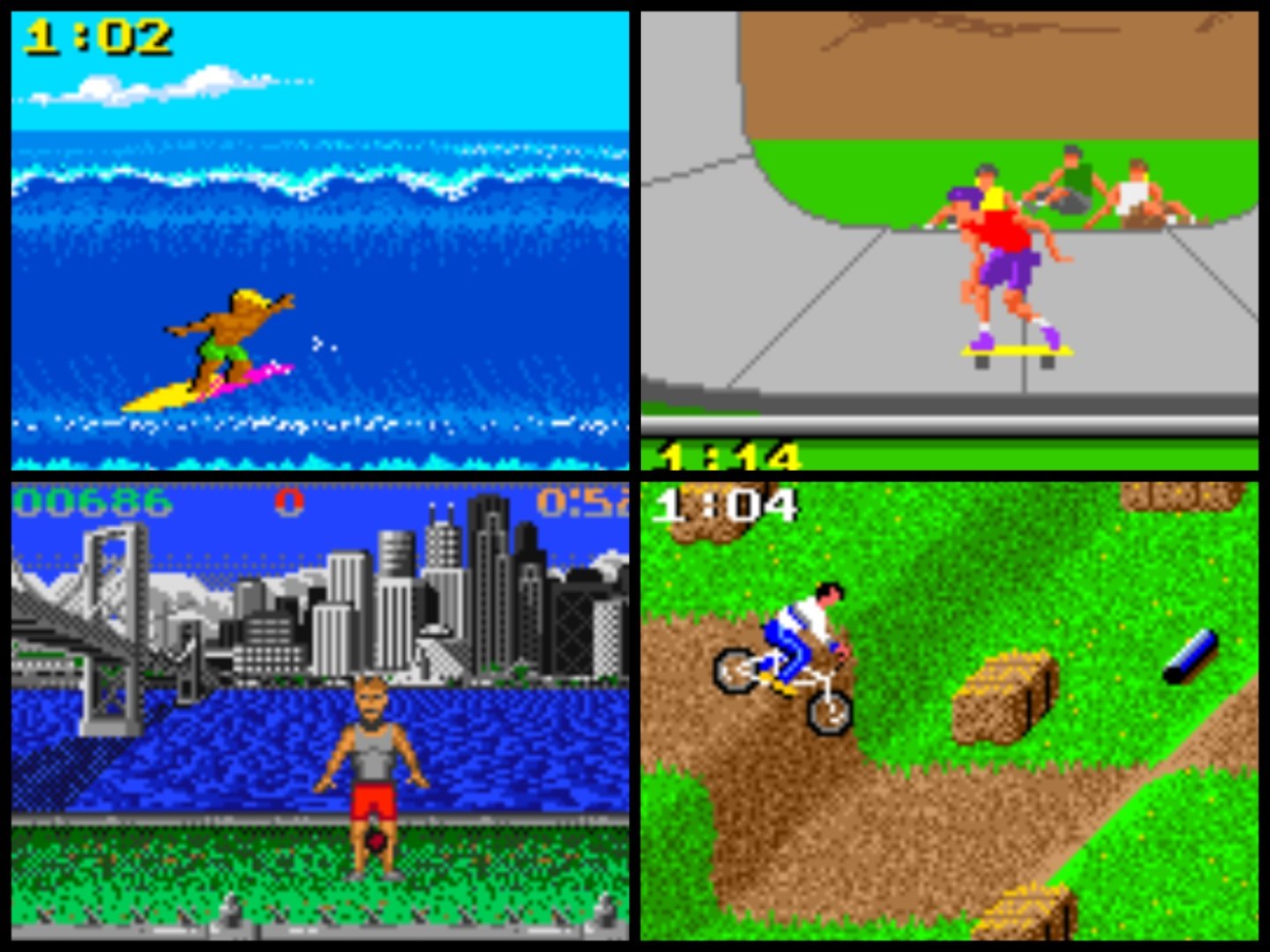
If you lived your late 80s teenage life in computer magazines, as I did, you’ll probably have an imprinted recollection of Californa Games on the Atari Lynx. It seemed to be the game that was running in all the photographs - that or Blue Lightning.
This port cuts the events down to four, losing Skating and Flying Disk. It has it’s own aesthetic and some funky scaling effects. And surfing goes to the left, weirdly. Overall, it controls and plays really well.
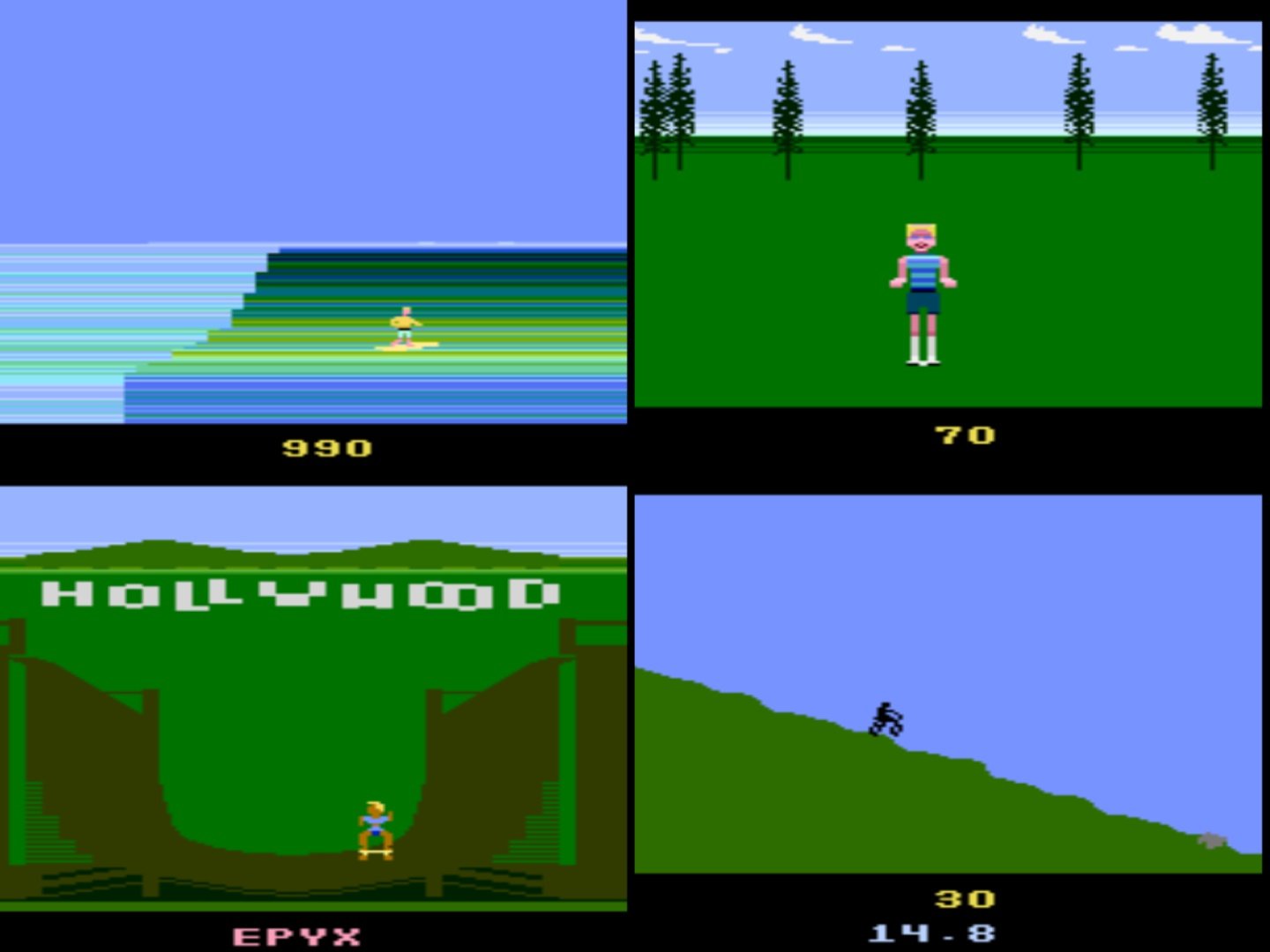
Finally, and most surprisingly, the Atari 2600 got a port, probably one of the last games to be released for the system. And, somehow, it isn’t terrible!
Don’t get me wrong, it is cut back significantly, and some of the events are unrecognisable (BMX for example). But it plays like California Games, and it feels a bit like California Games.
It’s something of a miracle that it exists at all really… but if you were somehow still on Team 2600 in the late 80s, this would have brightened your day.
If you’re going to play one version: give the C64 port a go!
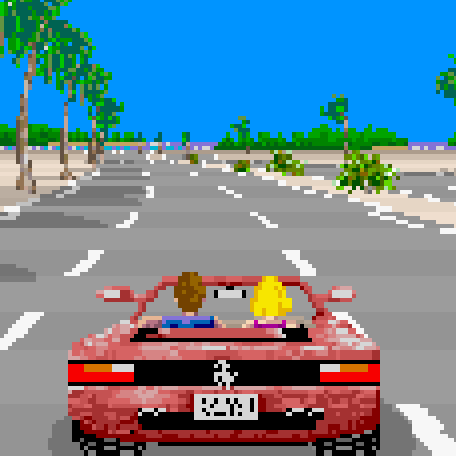

Wow, I totally forgot about this one. I used to play it all the time when I was a kid. I think I bonded with it because my family moved to California around that time and I had trouble fitting in (a-la Daniel-san), so I think partially it was my way of simulating being a native as silly as that sounds. Anyway, I had the NES version, but your write-up is making me want to try a Sega ROM of it. Thanks for the nostalgia blast!
It’s intriguing to hear that this game was used as a teaching tool to help kids learn the ways of Californian culture :)
I mean, I didn’t take notes or anything, but given how much I played, looking back I think it was some sort of coping mechanism. Moving can be tough on kids.